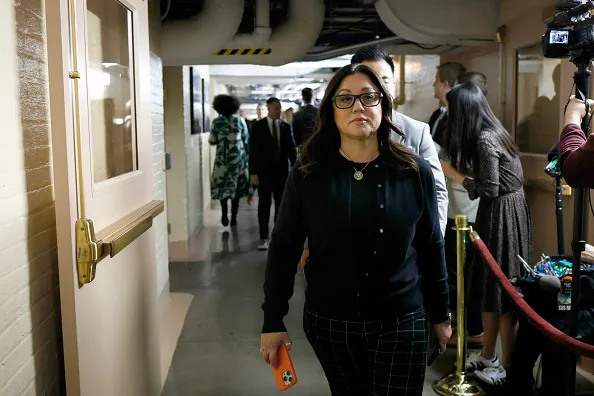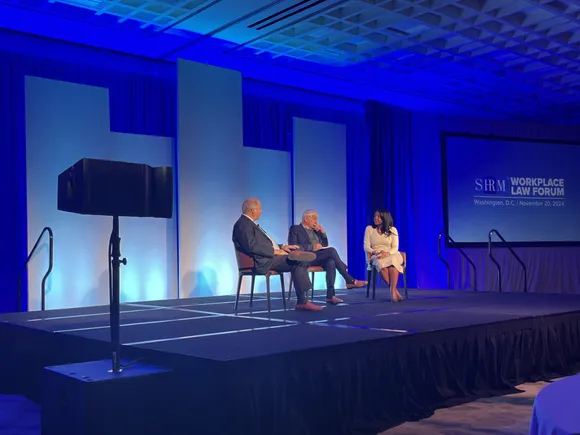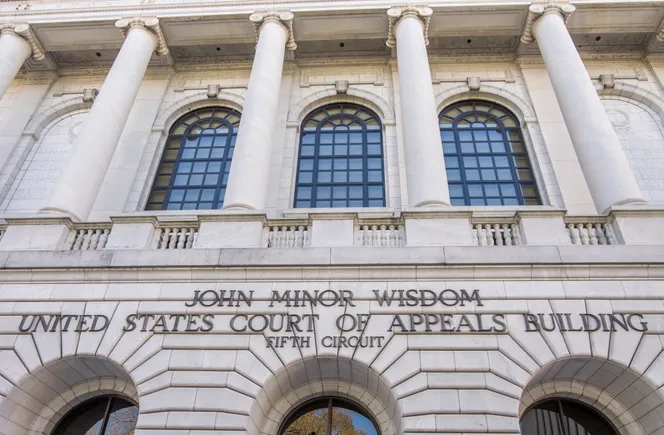Gender remains an effective tool for horror, in my opinion.
Among many, I think of entertainment company A24’s recent run of gender-based horror. “Bodies Bodies Bodies” in 2022 illustrated the terrors of modern teenage girlhood. A few years earlier, “Midsommar” showed the perils of mansplaining, unchecked. And in 2015, “The VVitch” posed Satan as an answer to the suffocating norms and boredom of girlhood in 17th century America.
But long before these indie horror darlings, we had Sigourney Weaver showing the hardships of being “the only,” in space, via the “Alien” franchise that launched in the ‘70s and continued through the ‘90s. And closer to home, Jodie Foster starred as Clarice Starling in the 1991 “Silence of the Lambs” adaptation. Perhaps scarier than the man who feasted on human flesh with fava beans and a Chianti was the blatant sexism Clarice faced as a trainee with the Federal Bureau of Investigation in Quantico, Virginia.
Today, however, these horrors are ongoing off the screen: According to a 2019 lawsuit, leadership at the FBI allegedly discriminated against dozens of training academy participants on the basis of sex.
The FBI’s $22M class action discrimination suit
Starting in April 2015 and lasting up until August 2024, the FBI violated Title VII of the Civil Rights Act by judging these women more harshly than their male peers, according to the plaintiffs. The FBI then dismissed these women due to their perception as weaker FBI candidates — disproportionately to the men who behaved or excelled similarly, the suit claimed. The bureau had docked the women on the “suitability” part of its grading rubric.
Representatives for the class filed a preliminary approval motion to settle the case at the end of September. The parties plan to settle the case for $22.6 million.
Paula Bird, a lead plaintiff in the suit, said it was once her “dream” to be an FBI agent.
“I interned with the FBI in college and did everything needed to qualify for a special agent role. I even became a lawyer, which the FBI considers a high-value qualification for future agents. It was shattering when the FBI derailed my career trajectory,” Bird said in a statement. “Seeing the FBI — which is supposed to represent the best of law enforcement — dismiss so many talented women from the agent training was disillusioning.”
Paula’s words feel like potential diary entries of an embattled “final girl,” like Clarice.
It’s baffling that this is still the reality that so many women still have to face, even in our government’s executive branch.
Does the FBI know how to do better?
It does.
It’s part of the Department of Justice, an agency with a section focused on stopping workplace discrimination on the basis of race, color, religion, sex or national origin by other employers.
The FBI’s own career website highlights its Office of Diversity and Inclusion and outlines a longstanding legal and cultural commitment to those principles. There’s also a FBI page discussing the agency’s role in actor prep and set production for “The Silence of the Lambs,” which states that the film “inspired a generation of women to join the FBI.”
The irony, not lost on me, is an enduring one: Even organizations that commit themselves to DEI fall short sometimes. Organizations are fallible, because they’re made up of human beings, who are conditioned around and always susceptible to bias.
DOJ leadership admitted fault here in some ways. In 2022, the Office of the Inspector General released a report evaluating gender equity in the FBI Basic Field Training Course, which began in 2015. A key finding? Men and women graduated at “comparable rates,” but female trainees “received a disproportionate number of dismissals and negative tactical training evaluations.” Of the women surveyed, 45% said they were evaluated differently because of their gender.
Likewise, a “substantial” number of female trainees reported inappropriate behavior, the FBI said; 50% of women surveyed said that “instructors told sexist stories or jokes.” This mirrors the treatment Starling faces in both the book and the film adaptation of “The Silence of the Lambs.”
Private or public sector, women survive so much at work
In the corporate world, McKinsey & Co’s Women in the Workplace Report has become a well of institutional knowledge on this subject, tailored to the U.S. In a survey of more than 480,000 people at more than 1,000 companies, results show that women only hold 29% of C-suite positions these days — compared to 17% in 2015.
It’s progress, but as McKinsey researchers said in this year’s report, “Progress is not parity.” Plus, progress has been even slower at the entry-level and manager levels, data shows, and the challenges are even more pronounced for women of color and LGBTQ+ women.
Decades after entering the modern workforce, working women continue to struggle with the same issues — many of which continue to be explored in horror media.
See: the struggles of returning to work and reintegrating into professional life after childbirth as seen in this year’s“Nightbitch;” the distinct challenges of intersectionality in last year’s “The Other Black Girl;” exploitation by male colleagues and the looming threat of sexual assault explored by 2021’s “Last Night in Soho;” and the deadly pressure to be perfect, epitomized and embodied in 2010’s “Black Swan.”
But maybe we turned a corner on those tropes in “Longlegs” this summer. Beyond the understated but rich cinematography, the film felt refreshing because protagonist Lee Harker leans on “a woman’s intuition” to save lives and solve cases. Her male supervisor wasted no time in trusting Lee’s gut feelings on how to catch the main killer.
Ironically, Lee is a freshly minted agent with the FBI.
While the ending of “Longlegs” is bloody and imperfect, at least the central horrors aren’t ongoing microaggressions, harassment or belittlement by colleagues — and is, instead, the actual serial killer at hand.
Whether we turn a corner on workplace bias off-screen remains to be seen.






Leave a Reply